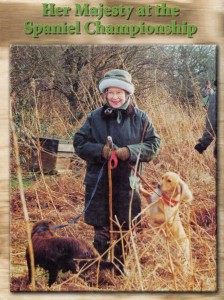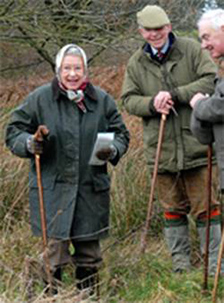The Amateur Trainer
I had been training and campaigning my dogs in competition obedience trials for a good eight years before I got my first field dog. I had studied extensively the theory of animal behavior, the use of operate and response conditioning, attending seminars on the subject. I taught many obedience training classes incorporating the technology of shaping behaviors. Yet when I got my first field bred cocker Ellie, I felt totally incapable of training a dog to compete in field trials. This was foreign ground, different from the familiar obedience trial world. I felt overwhelmed at the prospect of actually training the dog myself.
I read everything I could get my hands on about field training.
I picked the brains of the best professional field trainers around. It all seemed to come down to, you needed birds to make a gun dog. Birds I didn’t have, and at the time I also didn’t know how to shoot for a dog.
Most trainers believe that you should let your pup chase birds so that they learn that they can’t catch them. This theory is also based on the principle that chasing builds bird drive. I always felt that bird drive was bred into the genetic background of any quality field dog.
I believe there are better ways to get a young dog fired up for birds than to let him chase. For months the young pup is allowed to chase across the field in hot pursuit of birds before he learns the whole picture is about to change. How does one teach a dog that chasing is no longer allowed? By the use of force, either to run the dog down and give him a good shaking or incorporate the use of the e-collar. I believe both methods can create problems. This whole chase concept felt wrong to me, like putting the cart before the horse.
Now my dog Ellie was the type that loved to chase birds, just for the fun of chasing. She knew she would never catch them, but she would still burn across the field and chase her bird into the next county. I was told by many a pro to give up and start over with a new pup. This was never an option as Ellie was my love. That’s when Bruce McClarin entered our lives. Not only was Bruce one of the best wing shots I’d ever seen, but he also had years of training dogs behind him. Bruce’s stubborn Scotch nature would soon do battle with Ellie’s willful personality. Many a time Bruce would pick me up off the ground as I sat head in hand sobbing. He never gave up on us. Steadying Ellie was not unlike breaking a wild horse. Sometimes I feel Ellie has taught me more than I’ve taught her. She taught me to go deeper into my bag of tricks, to use the behavioral training methods I used successfully in obedience training.
Our new generation of Windsor Beach Cockers are being trained using positive conditioning. Our method shapes top performance rather than trains for it. There is a difference.
I’m still learning a lot about the field trial game. This past fall I had a long conversation with a top pro trainer who pointed out that field trials are a game, it’s not about hunting. I balked at this at first, but later gave it a lot of thought.
In a trial we have flags that give us a clear boundary. We know the birds have been planted in the field and about where they are. The dog is to quarter his ground thoroughly, exhibit good use of wind and stay within gun range. He must also hup to shot, stay steady until sent and honor his bracemate. This is a simulated hunting scenario. In a real hunting situation I want my dogs to hunt objectives. I don’t worry about the perfect ground work. I’m unsure as to where game is; I rely on my dog’s natural game finding ability. Needless to say the dog must always work to the gun and remain steady.
Finally the light went on in my head. Yes, this was a game not unlike obedience, agility or any other AKC trial. The dog is performing a controlled set of exercises.
Amateurs don’t always have the resources or the time that the professional trainer has. I believe the larger part of training is accomplished through the yard training. Yes, birds are a vital part of the training, but not until later, after control has been instilled. One of the greatest handicaps the amateur faces is not the training, but the handling. This, I have come to realize, is the key difference between the amateur and the pro competitor.
Over the next few months, Bruce and I look forward to sharing our training ideas with other amateur trainers. We will also share resources we have found beneficial in training our cockers.
See you next month with Puppy Training 101:Shaping Behaviors.
PROFILE: Bruce McClarin & Debbie Curtice
Bruce McClarin has been involved with the sport of dogs for over forty years. His first dog was a coonhound that he trained to hunt rabbits; later he bred and showed Shetland Sheepdogs. He has competed and titled his dogs in obedience, agility, flyball and herding events. Currently Bruce is breeding and training field-bred English Cockers for field trials and hunt tests. An accomplished sporting clays shooter, Bruce also enjoys hunting and shooting over his spaniels.
Debbie Curtice has been training dogs for seventeen years. She has been in obedience competitions in the U.S. and Canada, and titled her American Cockers in both countries. Debbie has taught obedience and agility in group classes as well as in private one-on-one sessions. She has been trialing field bred English Cockers for the past few years and, along with Bruce McClarin, co-owns Windsor Beach Cockers.
Debbie enjoys shooting Sporting Clays and also has shot pheasants, chukar, quail, grouse and woodcock over the cockers she has trained.



